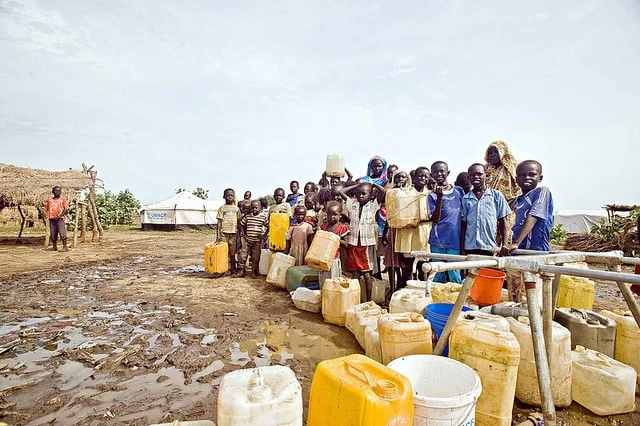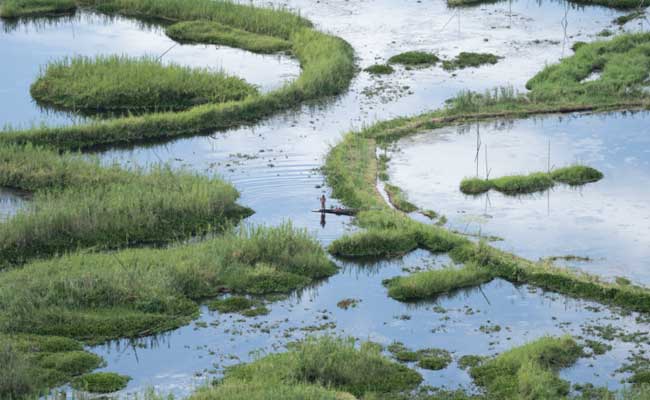Water Scarcity: Water is a fundamental resource essential for life, yet water scarcity has emerged as a global challenge with profound implications for human health, agriculture, industry, and ecosystems. As population growth, climate change, and unsustainable water management practices continue to strain water supplies, it is crucial to understand the challenges associated with water scarcity and explore sustainable solutions for its management. This article delves into the key challenges posed by water scarcity and presents potential solutions to ensure the sustainable utilization and preservation of this vital resource.
I. The Challenge of Water Scarcity:

- Growing Demand and Population Pressure: With a rapidly increasing global population, the demand for water is intensifying. Rising population densities in urban areas, coupled with industrialization and agricultural expansion, are placing immense stress on water resources. The escalating demand for water, particularly in regions already facing scarcity, exacerbates the challenge of meeting the needs of both humans and ecosystems.
- Climate Change and Variability: Climate change is altering the availability and distribution of water resources. Changing precipitation patterns, increased frequency of extreme weather events, and rising temperatures affect the hydrological cycle, leading to reduced water availability in many areas. Droughts, floods, and heatwaves are becoming more frequent, further intensifying water scarcity challenges.
- Inefficient Water Use and Management: Poor water management practices contribute significantly to water scarcity. Inefficient agricultural irrigation methods, inadequate water infrastructure, lack of water conservation practices, and wasteful consumption patterns all contribute to the depletion and contamination of water sources. These issues demand urgent attention and effective strategies to optimize water use.
II. Sustainable Management Solutions:
- Efficient Water Use and Conservation: Promoting efficient water use is crucial for sustainable management. Implementing modern irrigation techniques such as drip irrigation and precision agriculture can significantly reduce water wastage in agriculture. Encouraging water-saving practices in households and industries, such as fixing leaky faucets, installing water-efficient appliances, and recycling wastewater, can also contribute to conservation efforts.
- Integrated Water Resource Management: Adopting an integrated approach to water resource management helps optimize water allocation among different sectors. Implementing comprehensive water management plans that consider the needs of agriculture, industry, and ecosystems, while accounting for environmental sustainability and equitable access, can ensure the efficient use and equitable distribution of water resources.
- Rainwater Harvesting and Storage: Rainwater harvesting and storage systems can help capture and utilize rainfall, especially in regions with low precipitation. Collecting rainwater from rooftops and surface runoff can replenish groundwater sources and provide a decentralized water supply for communities, reducing dependence on scarce freshwater sources.
- Water Infrastructure Development: Investment in water infrastructure is crucial for managing water scarcity. Building dams, reservoirs, and water treatment plants can enhance water storage capacity, regulate water supply, and improve water quality. Furthermore, upgrading aging water distribution networks can minimize water losses through leakage and improve water delivery efficiency.
- Wastewater Treatment and Reuse: Wastewater treatment and reuse offer a sustainable solution to augment water supplies. Implementing advanced treatment technologies can transform wastewater into a valuable resource for irrigation, industrial processes, and even potable water in some cases. Proper regulations and infrastructure are essential to ensure the safe and efficient reuse of treated wastewater.
- Awareness and Education: Raising awareness about water scarcity and the importance of sustainable water management is critical for long-term solutions. Educating communities, policymakers, and industries about water conservation practices, the implications of wasteful consumption, and the value of preserving water ecosystems can foster a collective commitment to sustainable water use.
Water scarcity poses significant challenges that require immediate action and long-term strategies for sustainable water management.
Read Also: The Potential of Green Infrastructure in Urban Planning and Design
![]()






2 thoughts on “Water Scarcity”